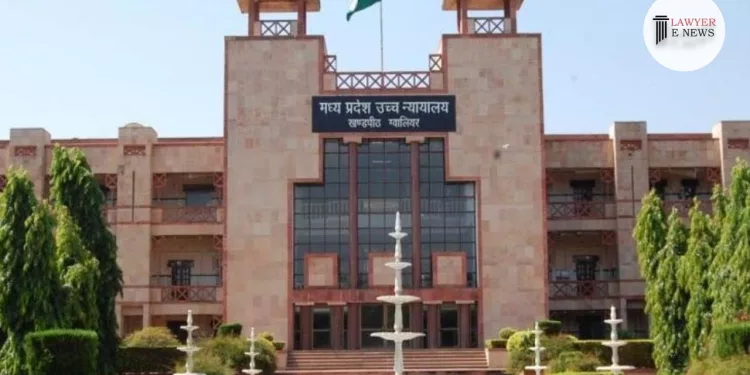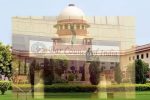Unauthorized Construction on Private Land Violates Constitutional Rights : Madhya Pradesh High Court Orders Immediate Halt

In a landmark decision, the High Court of Madhya Pradesh has ordered the immediate cessation of road construction on private land without following due legal process. The judgment, delivered by Justice Gurpal Singh Ahluwalia, underscores the inviolability of property rights under Article 300-A of the Constitution of India, emphasizing that the State cannot dispossess a citizen of their property without legal sanction and adequate compensation.
Background: The petitioner, Bhaskardutt Dwivedi, approached the High Court of Madhya Pradesh challenging the construction of a road on his private land by the Public Works Department (PWD) without following due legal procedures for land acquisition or providing compensation. Dwivedi’s writ petition under Article 226 of the Constitution cited violations of property rights and human rights, contending that the State’s actions were unconstitutional.
Dwivedi alleged that the State had begun constructing a road on his private land under the Pradhan Mantri Gram Sadak Yojna without acquiring the land through legal means or compensating him. The petitioner sought immediate cessation of the construction and adequate compensation for the unauthorized use of his land.
State’s Violation of Property Rights: Justice Ahluwalia highlighted the constitutional protection of property rights under Article 300-A, noting, “The State cannot dispossess a citizen of his property except in accordance with the procedure established by law.” The court referred to multiple precedents, including the Supreme Court’s ruling in Vidya Devi v. State of Himachal Pradesh, which affirmed that forcible dispossession without legal process is unconstitutional.
Invalidity of Adverse Possession Claim: The court rejected the State’s defense of adverse possession, citing the Supreme Court’s clear stance that the State cannot claim adverse possession against its citizens. “In a democratic polity governed by the rule of law, the State could not have deprived a citizen of their property without the sanction of law,” the judgment quoted from Vidya Devi’s case.
Non-Compliance with Interim Orders: Justice Ahluwalia expressed strong disapproval of the Executive Engineer’s non-compliance with interim orders to halt construction. “The admitted non-compliance indicates a hostile attitude towards legal processes and citizens’ rights,” he remarked, directing that mesne profits for the unauthorized use of land be recovered from the responsible officer’s salary.
Constitutional and Human Rights Violations: The judgment extensively discussed the State’s obligations under constitutional and human rights frameworks, emphasizing that property cannot be taken without due process and fair compensation. The court stated, “To forcibly dispossess a person of his private property without following due process of law would be violative of a human right, as also the constitutional right under Article 300-A of the Constitution.”
Accountability and Compensation: Justice Ahluwalia ordered the immediate removal of the road from Dwivedi’s land and directed the State to compensate him for unauthorized use. Furthermore, he imposed mesne profits of Rs. 15,000 per day for the duration of the unauthorized use, to be deducted from the salary of the responsible officer, Shri Manoj Kumar Chaturvedi, Executive Engineer, PWD, Rewa Division.
“The State cannot dispossess a citizen of his property except in accordance with the procedure established by law,” stated Justice Ahluwalia, emphasizing the constitutional protections afforded to property owners.
In addressing the Executive Engineer’s non-compliance, the court remarked, “The hostile attitude towards the law and citizens of the state, as well as the authority of the Court, is indicative of an alarming disregard for constitutional mandates.”
This judgment by the High Court of Madhya Pradesh is a significant affirmation of property rights and the rule of law. By holding the State accountable and ensuring compensation for unauthorized land use, the court has reinforced the legal framework protecting citizens’ property rights. The decision also underscores the judiciary’s role in curbing arbitrary state actions and upholding constitutional guarantees.
For Live Court Proceeding Click Here .
Date of Decision: 22nd May 2024
Bhaskardutt Dwivedi v. State of Madhya Pradesh & Ors.






